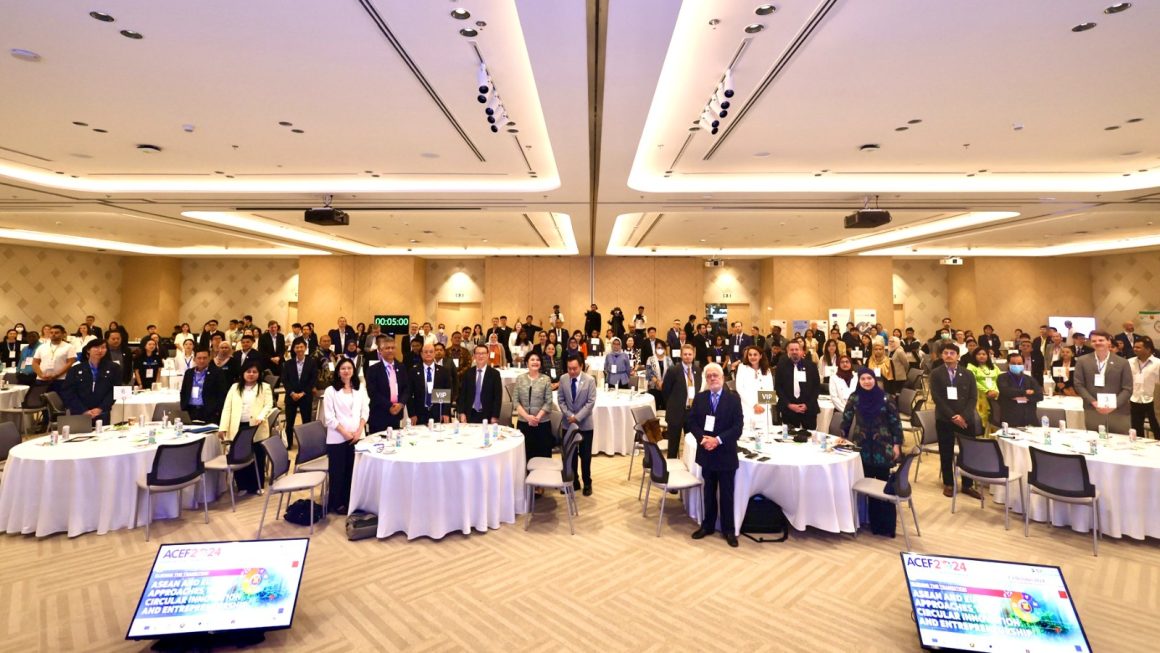Bangkok, Thailand – 2 October 2024 – The ASEAN Circular Economy Forum 2024 (ACEF2024) convened over 250 onsite and 150 online stakeholders from the private sector, governments, start-ups, academia, and civil society across ASEAN and the EU, including multilateral organizations. The forum explored cross-sector collaboration to advance the circular economy in Southeast Asia, addressing environmental challenges such as climate change, biodiversity loss, and pollution. It emphasized that circular practices could unlock significant economic value while reducing global greenhouse gas emissions by up to 45%.
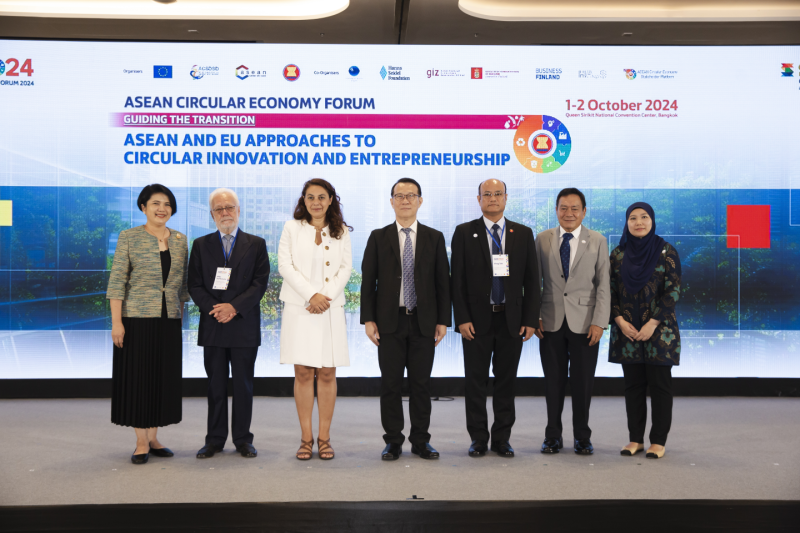
Opening Session
The opening session set the stage for the forum by highlighting the increasing recognition of the importance of the circular economy for ASEAN’s development goals.
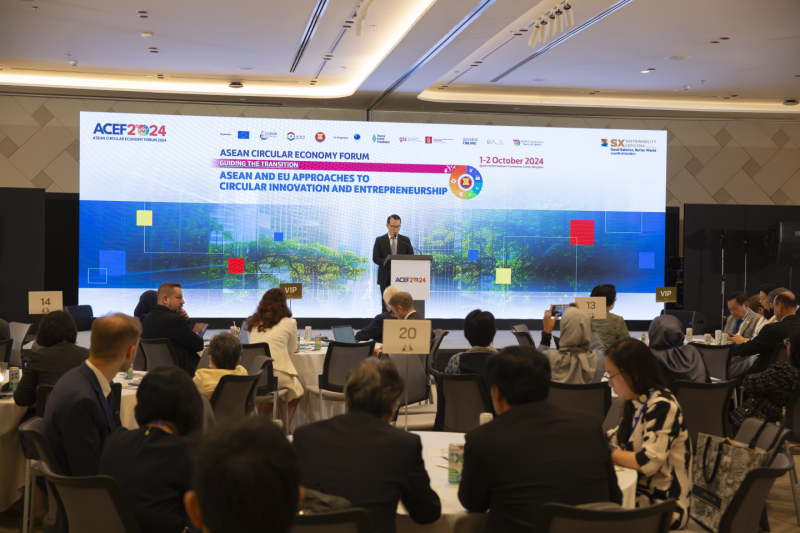
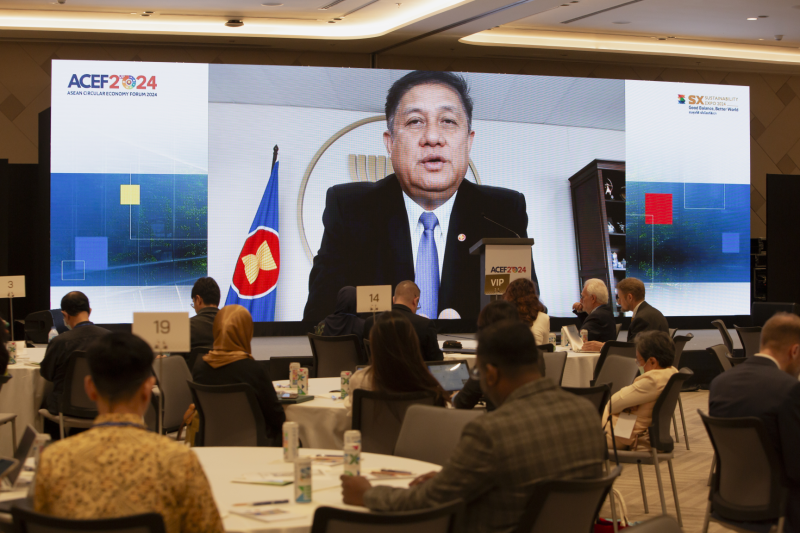
Mr. Paisan Rupanichkij
Deputy Permanent Secretary, Ministry of Foreign Affairs of the Kingdom of Thailand, welcomed the close collaboration between ASEAN and the EU in advancing the circular economy agenda in the region. Through the establishment of the ASEAN Circular Economy Stakeholder Platform at the ASEAN Centre for Sustainable Development Studies and Dialogue. H.E. Ekkaphab Phanthavong, Deputy Secretary-General of ASEAN for Socio-Cultural Community, spoke on how ASEAN can harness circular practices to drive innovation, improve resource efficiency, and bolster regional competitiveness.
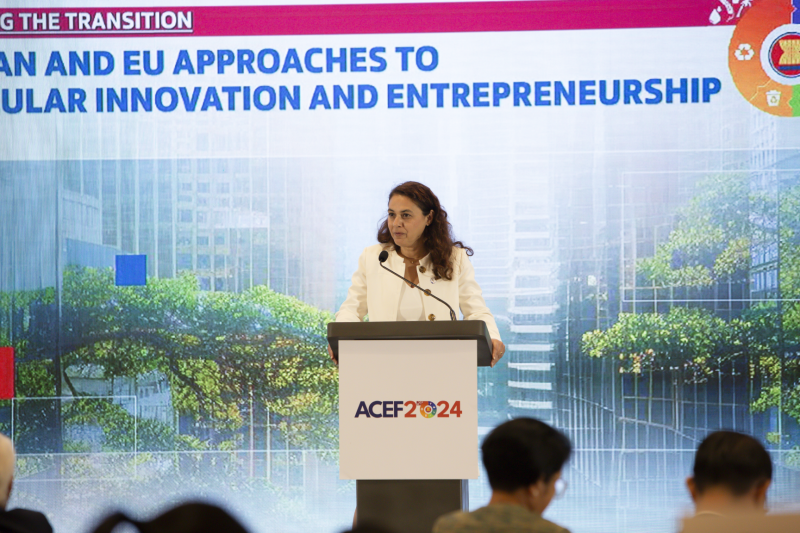
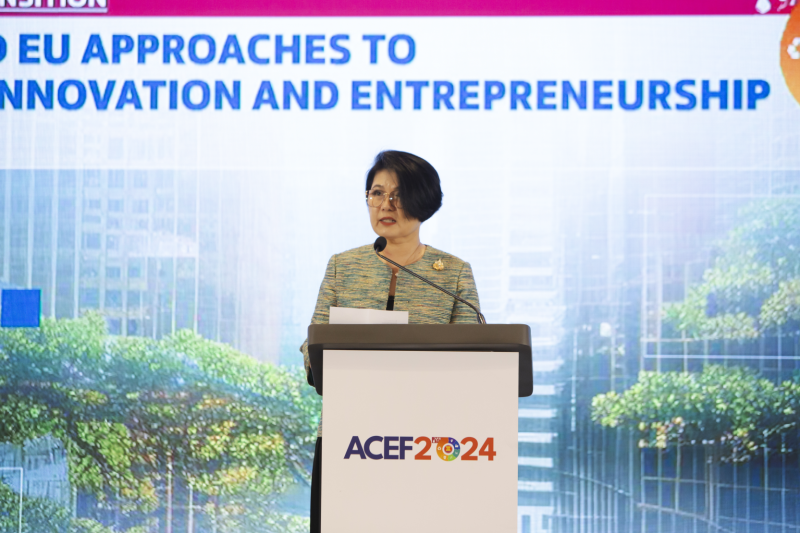
Ms.Renita Bhaskar, Minister Counsellor at the EU Delegation to Thailand, also underscored how circularity has driven growth and innovation in the EU, noting that recycled materials met 11.5% of the EU’s material demand in 2022. She expressed eagerness to collaborate with ASEAN to support the region’s circular transition. Ms Sutthipun Nujjaya, Deputy Managing Director, C asean, Thailand, welcomed all participants to the 2024 ASEAN Circular Economy Forum and 2024 SX Sustainability Expo.
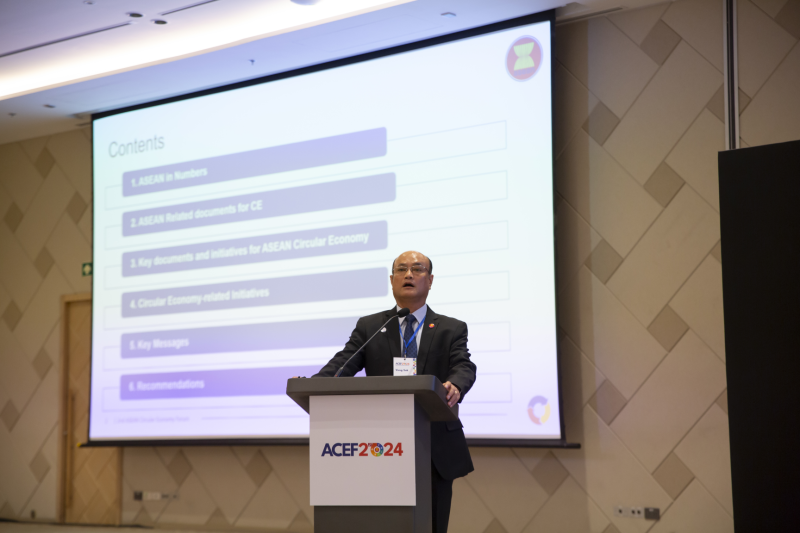
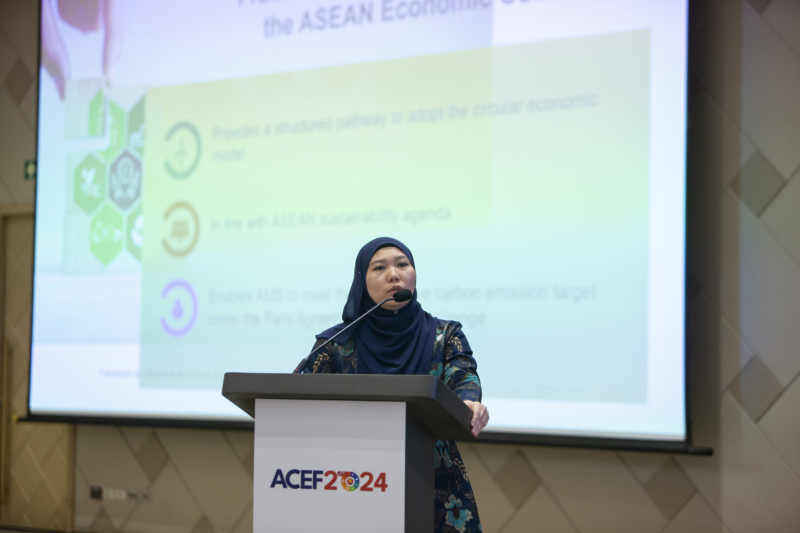
Session 1: Circular Economy in ASEAN – Harnessing the Potential of Regional Integration and Cooperation (09:25 – 10:45)
This session provided an overview of ASEAN’s efforts to develop circular economy initiatives. Dr. Vong Sok, Head of Environment Division at ASEAN Secretariat, detailed the ASEAN Socio-Cultural Community’s initiatives, while Ms. Latifahaida Latif, Assistant Director at the ASEAN Secretariat, discussed the ASEAN Economic Community’s Circular Economy Framework. These insights were followed by presentations on national initiatives, such as
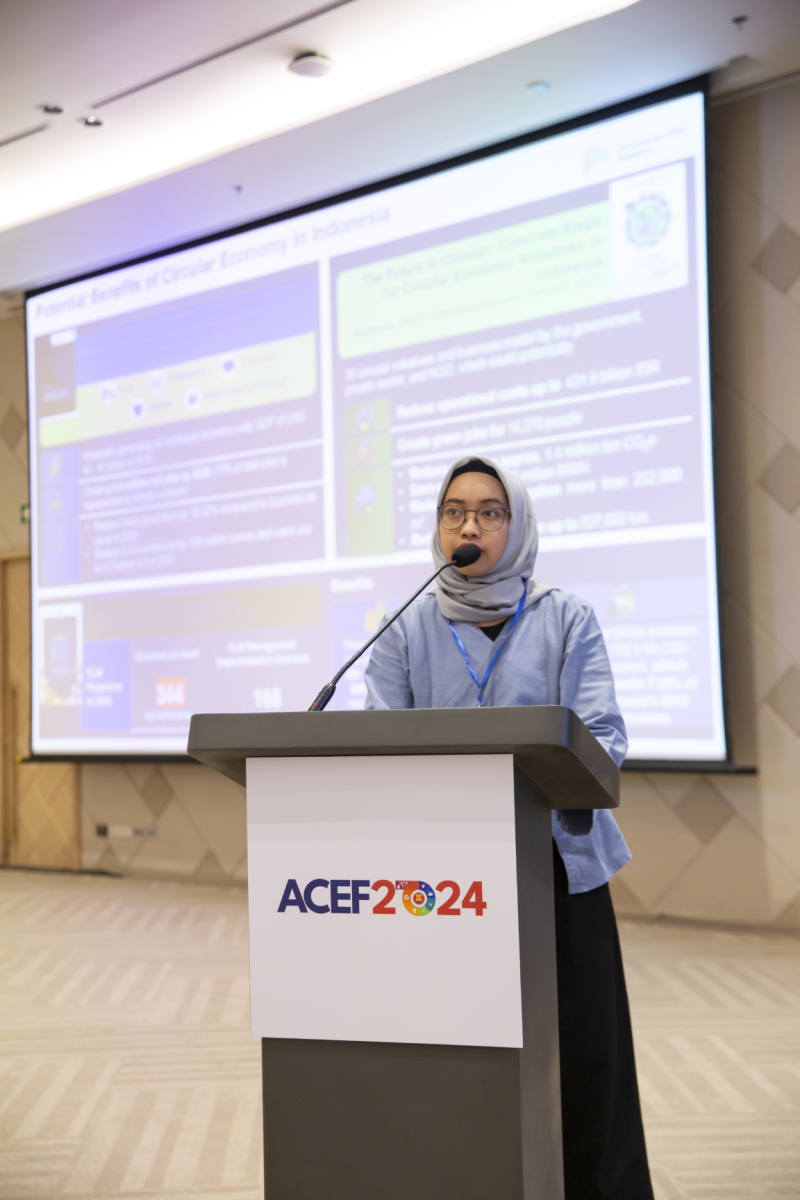
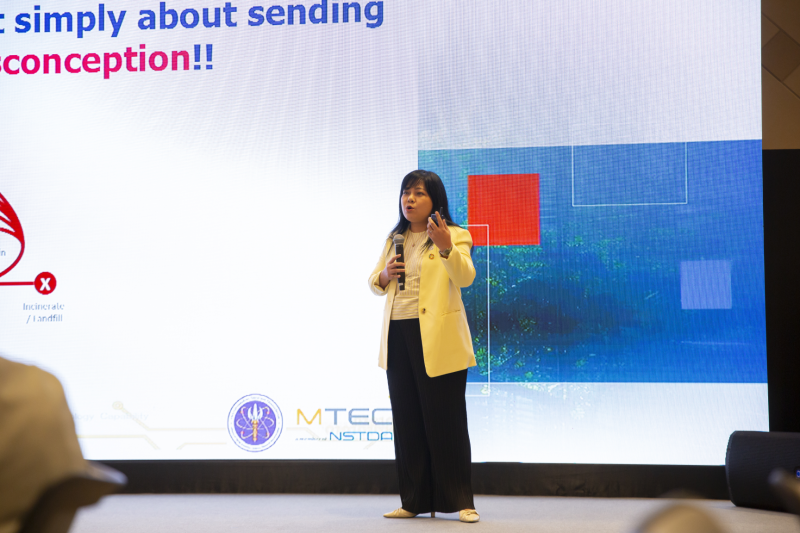
Indonesia’s Circular Economy Framework 2025-2045 by Ms. Asri Hadiyanti Giastuti, and Thailand’s private sector engagement by Dr Witchuda Daud of MTEC.
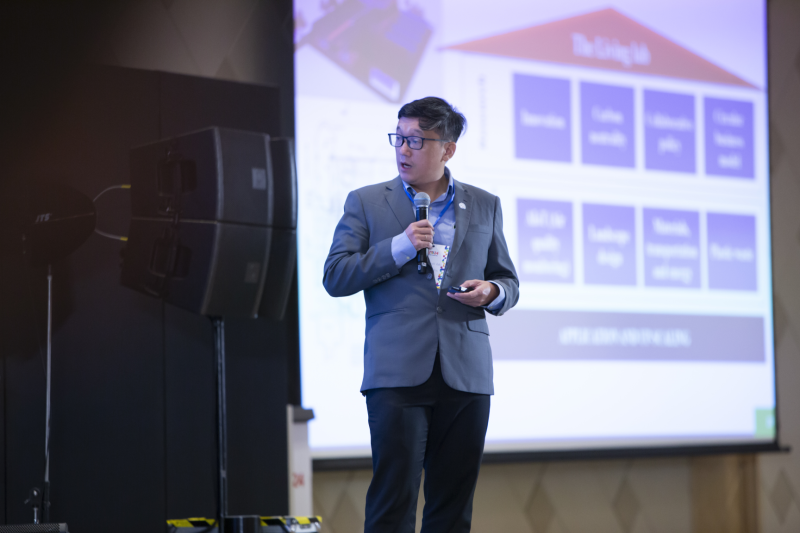
Dr. Hong Quan Nguyen from the Institute for Circular Economy Development, Vietnam, shared successful local government collaborations with businesses.
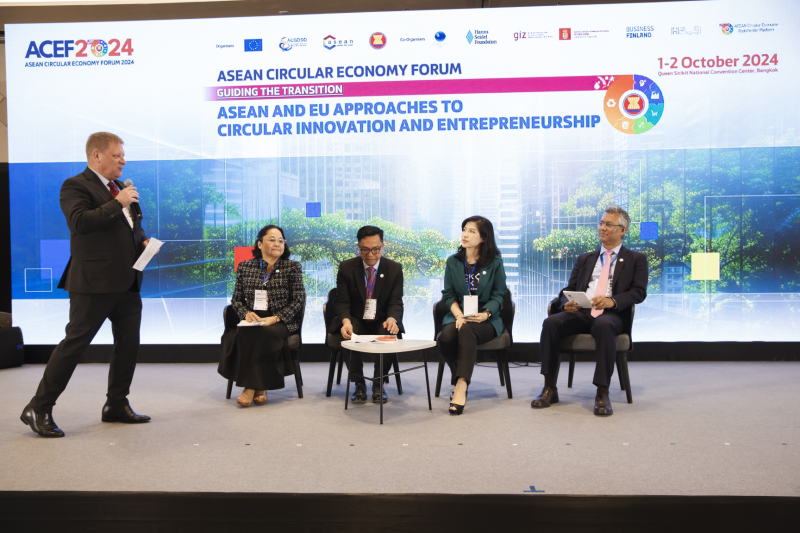
The session concluded with a panel moderated by Mr. Chris Humphrey, Executive Director of the EU-ASEAN Business Council, where participants discussed how regional initiatives can strengthen local and national circular practices. Esteemed panelists in this sessions included:
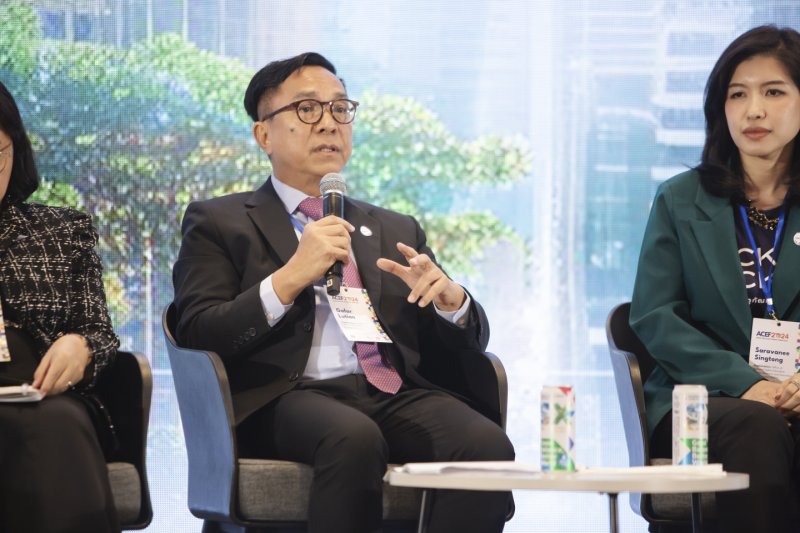
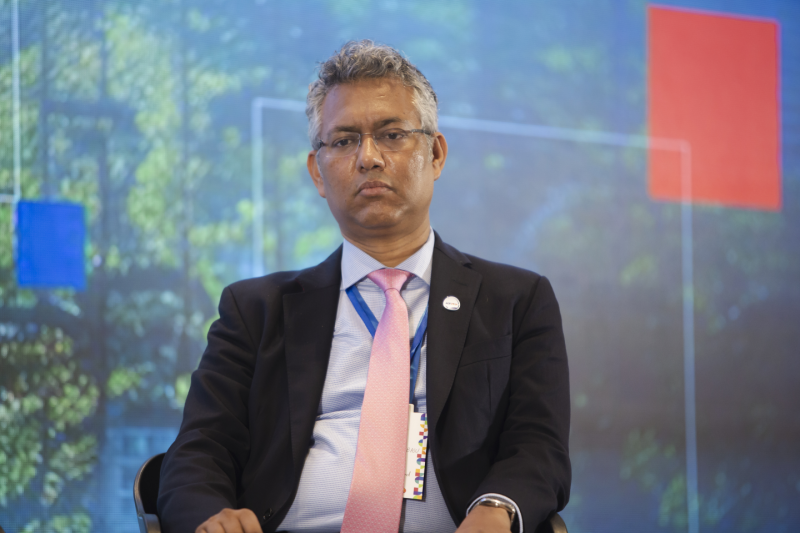
Mr Junie Lutian, India & SEA General Secretary, Danone | Dr. Sudip Ranjan Basu, UNESCAP, Chief of the sustainable business network in the Trade, Investment and Innovation Division
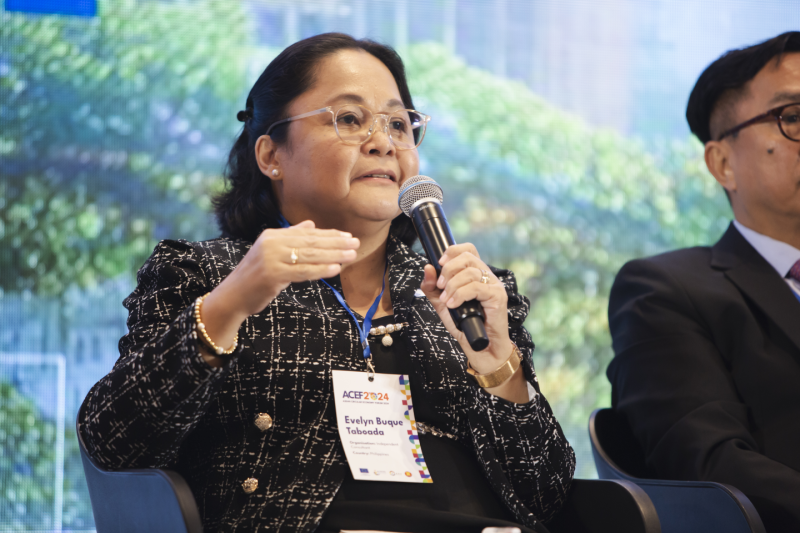
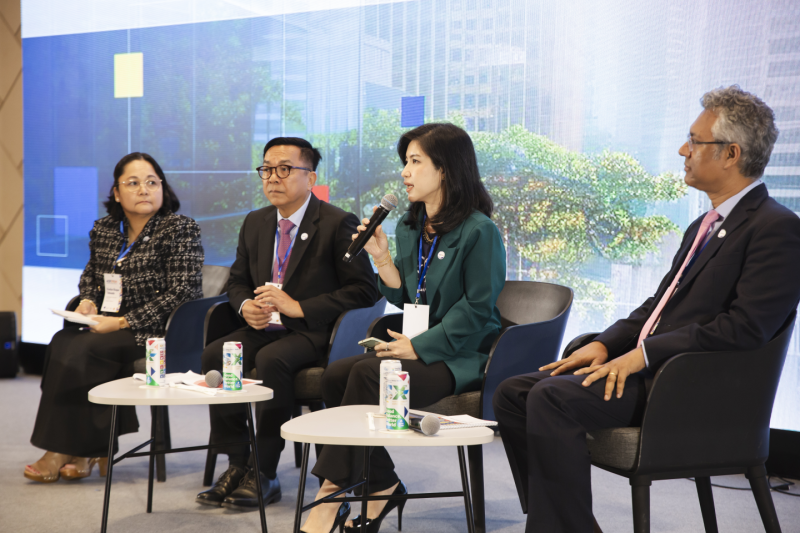
Dr. Evelyn B. Taboada (Philippines): Circular Economy TVET for the Private and Informal Sector |Dr. Saravanee Singtong, Division Director at NXPO
Session 2: Experiences from Advancing the Circular Economy in the EU, and EU Support to ASEAN
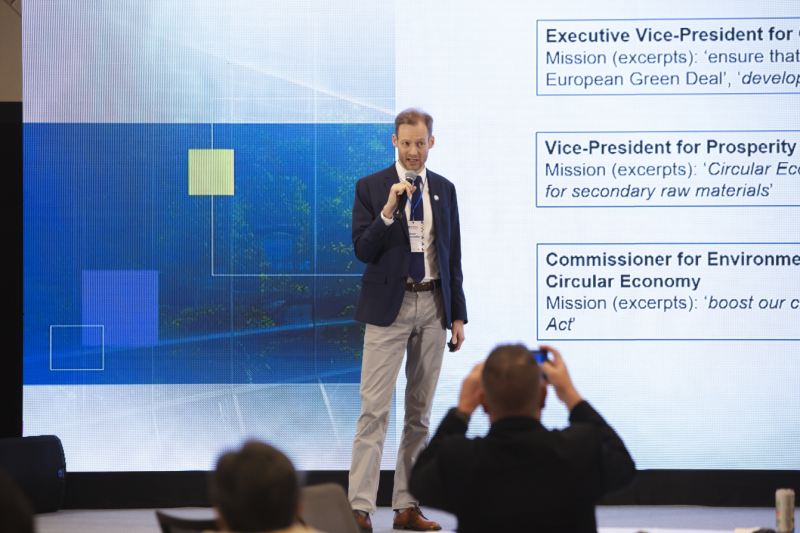
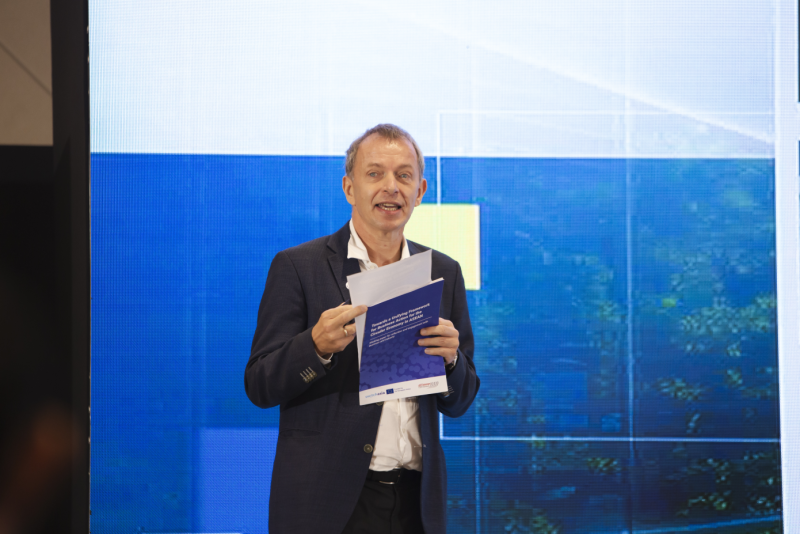
This session offered a European perspective, with Mr. Andreas Unterstaller, Attaché at the EU Delegation to Indonesia and ASEAN, providing an overview of EU achievements in circular economy policies and how these could support ASEAN’s transition. He shared examples of waste reduction, job creation, and innovation spurred by circularity in the EU. The panel featured contributions from Mr. Rene Van Berkel of the ASEAN Circular Economy Business Alliance
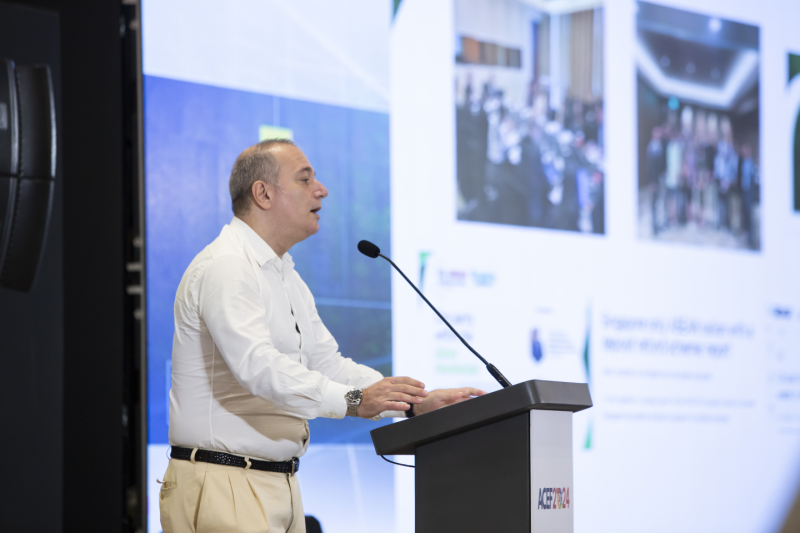
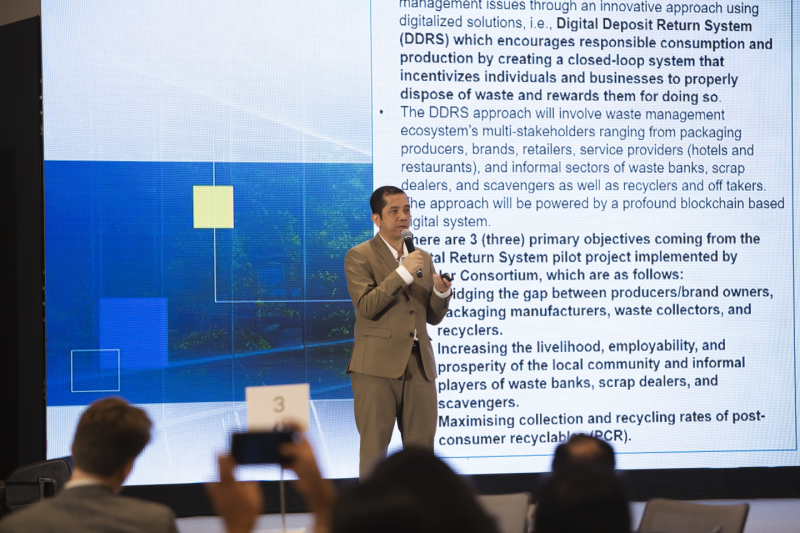
and Mr. Valerio D’Angelo from the Circularity Coalition, who discussed fostering business leadership in circularity, with a focus on lessons learned in the EU. Roy Andy Panjaitan, GIZ 3RproMar, GIZ Circular Economy Private sector engagement in AMS and lessons learned.
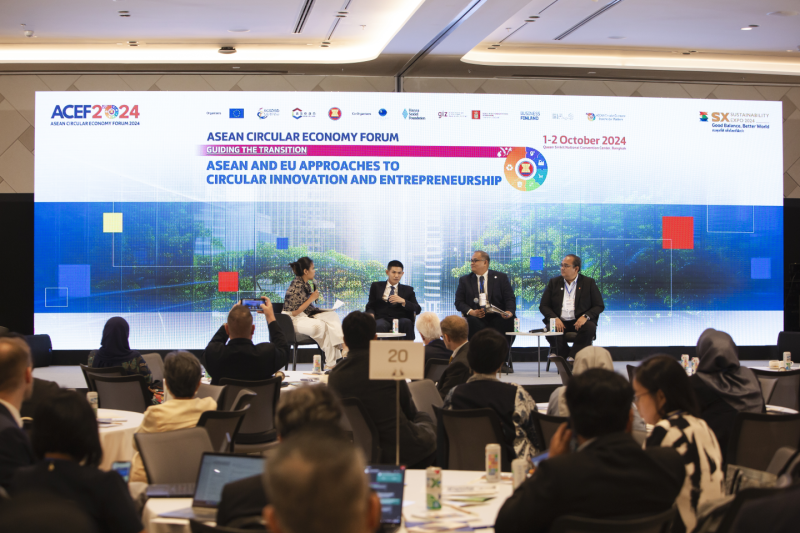
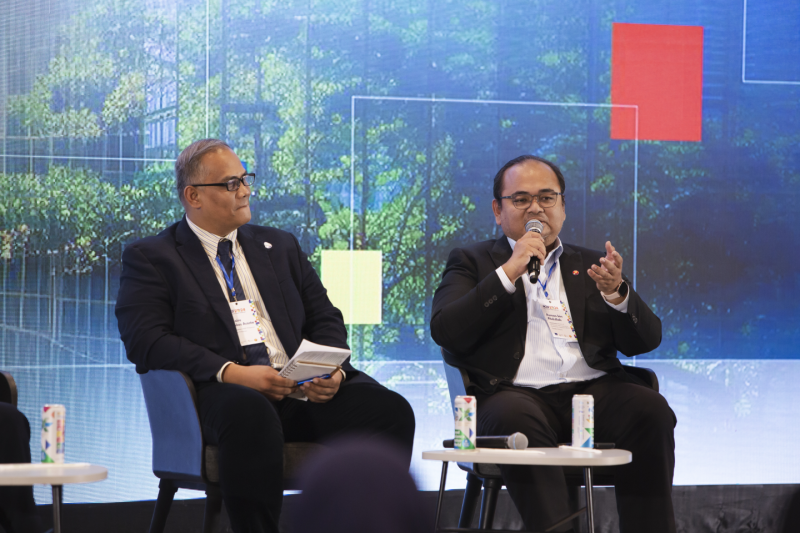
The session also involved a panel discussion moderated by Ms. Liyana Othman, Advocacy Director at the EU-ASEAN Business Council, with ASEAN stakeholders, including Mr Azman Abdullah, Deputy Undersecretary, Malaysia Ministry of Cooperatives and Entrepreneur Development (CoE Green Transition) ,
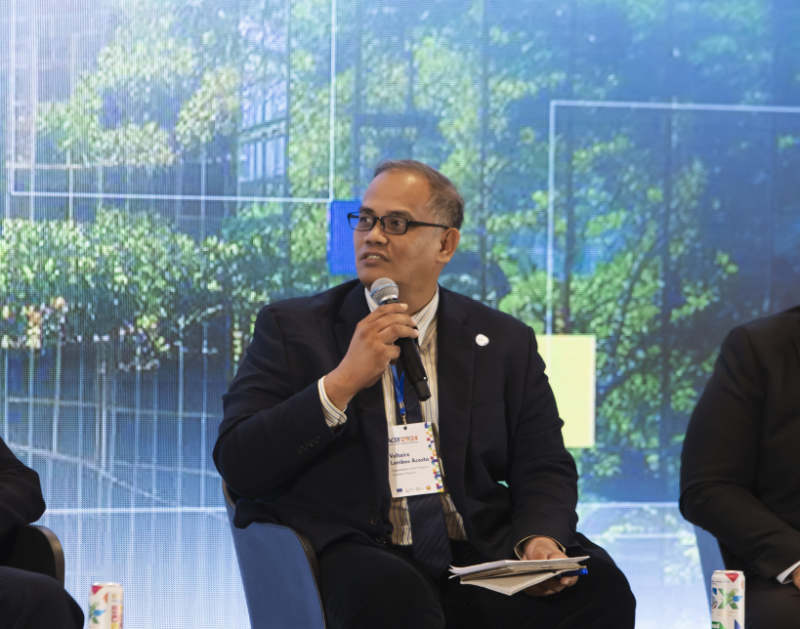
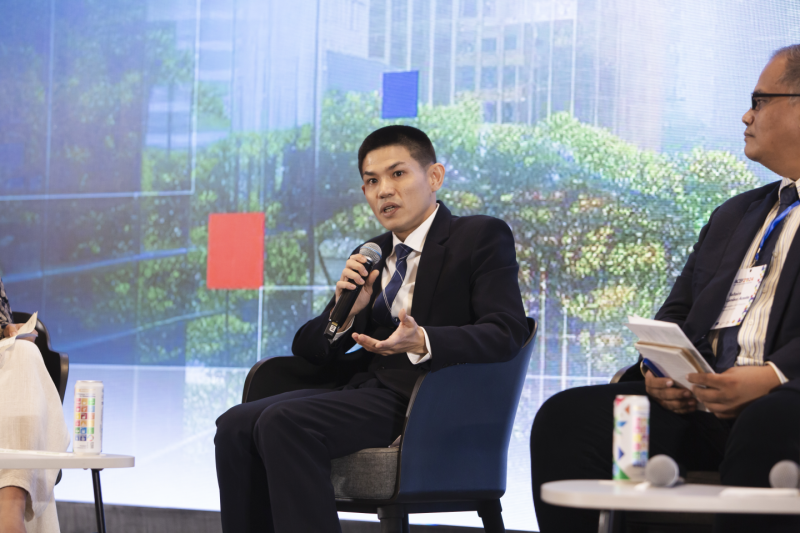
Mr. Voltaire Acosta of the EU-funded Green Economy Programme, and Mr Treesuvit (David) Arriyavat, ASEAN Circular Economy Stakeholder Platform, ACSDSD, who reflected on how EU assistance can be tailored to ASEAN’s needs.
Session 3: Thematic Deep Dives
The afternoon focused on two thematic deep dives:
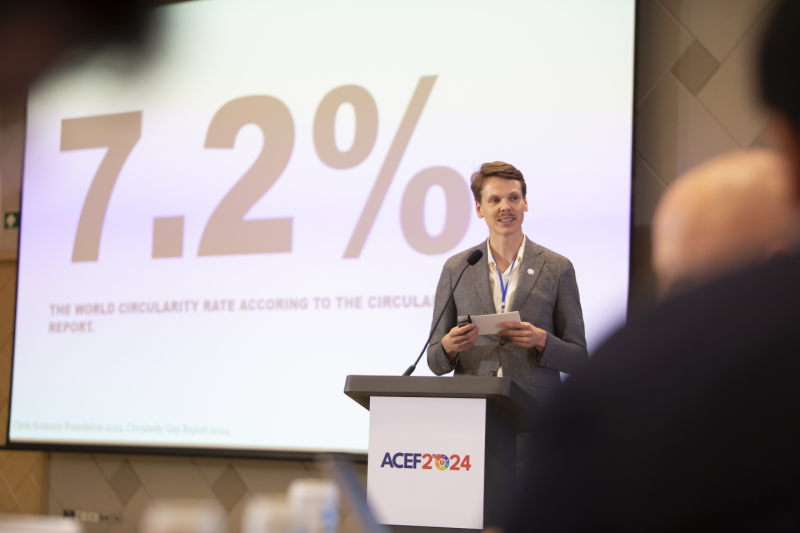
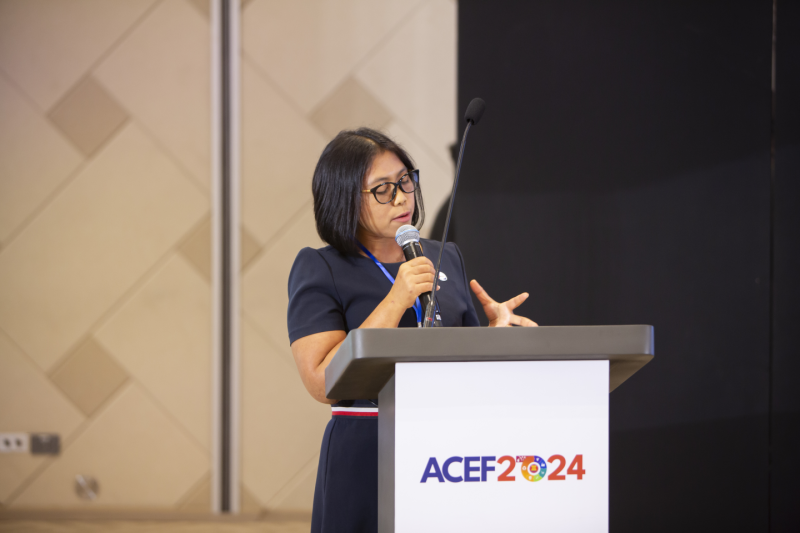
Deep Dive 4a: Strengthening the Regional Ecosystem for Circular Startups: This session was driven by insights from the WCEF2024 by Riku Sinervo, SITRA, and & Circular Startup Side Event Asih Budiati, Team Leader, Team Green Europe Initiative.
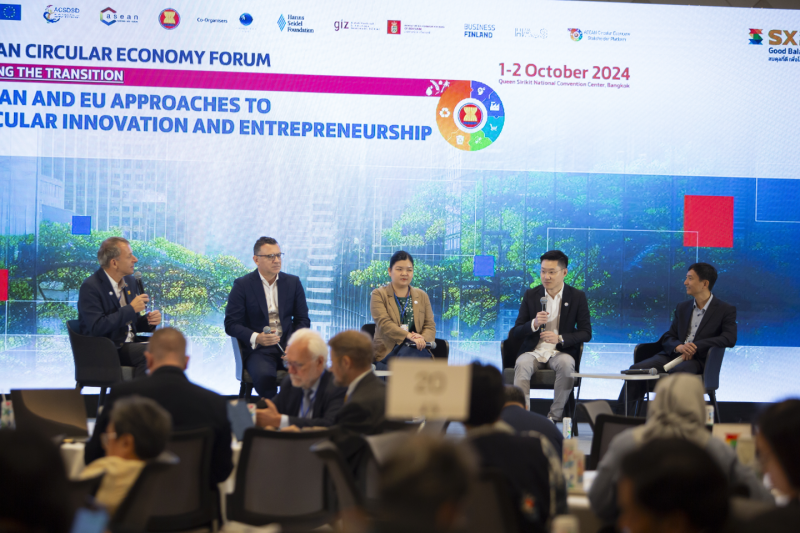
The session also involved a panel discussion moderated by Mr. Rene van Berkel of SWITCH Asia, it examined how ASEAN can foster a vibrant startup ecosystem for circular businesses.
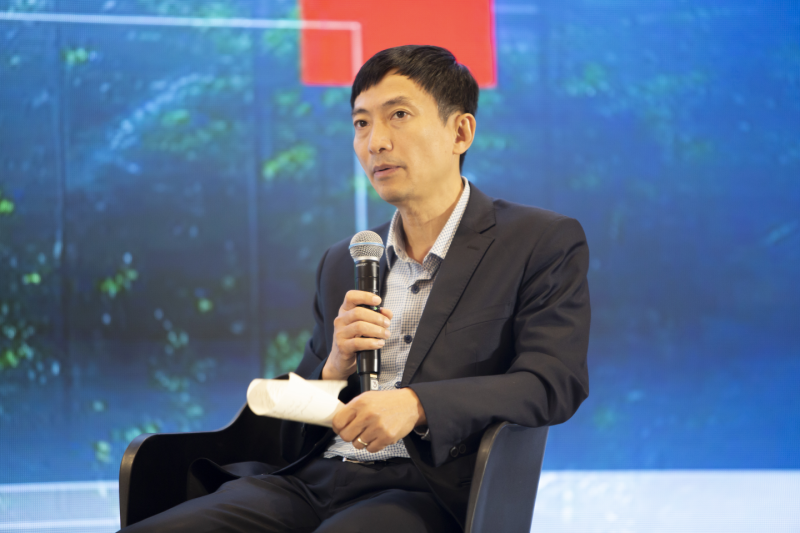
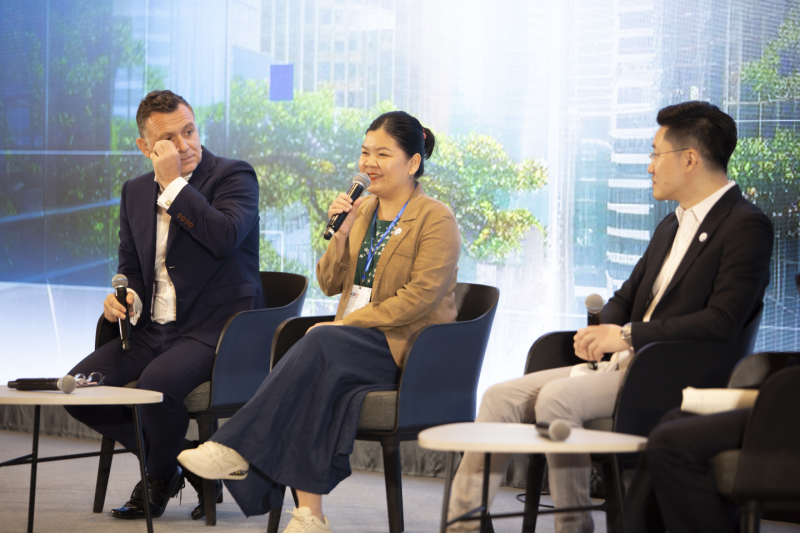
Speakers, including Mr. Nguyen Hong Long from the Center for Creativity and Sustainability in Vietnam and Ms. Tam Phan Hanh from Yunus Environment Hub, shared strategies to support MSMEs and scale circular innovations. The session emphasized recommendations from the recent MSME Survey and explored how regional initiatives can complement local and national efforts to support circular startups.
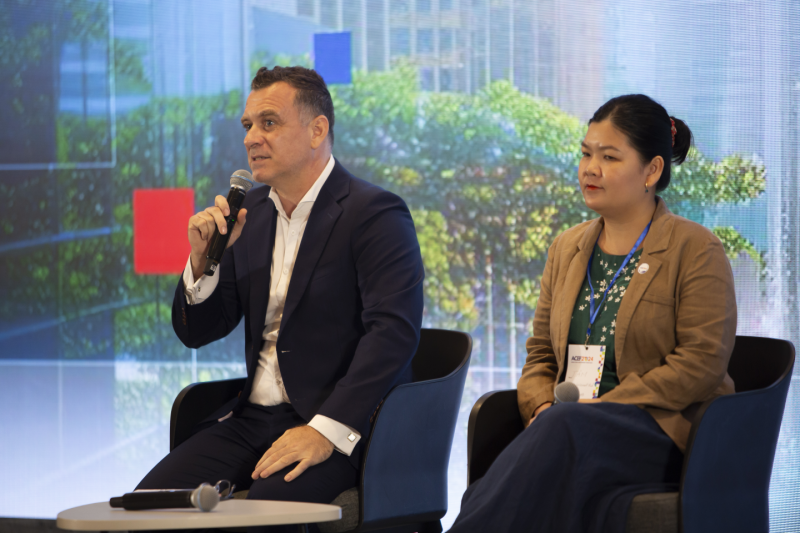
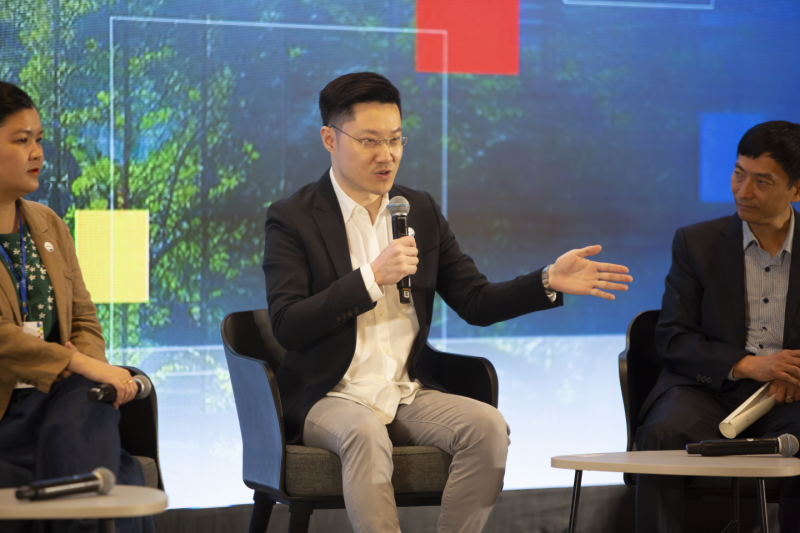
Mr Nicholas Gandolfo Director, ESG Finance Asian Investment Banking Division – Investment criteria for start-up MUFG, and Mr Nophol “Naps” Techaphangam, Founder and CEO of nornnorn
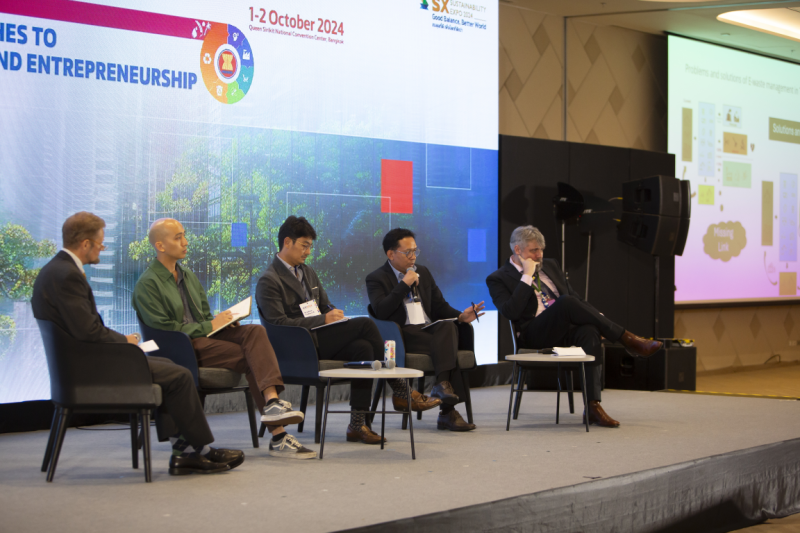
- Deep Dive 4b: Comprehensive Circularity for Electronics: Moderated by Mr. Magnus Bengtsson, this session addressed the repair and refurbishment sector for electronics in ASEAN, discussing how to professionalize repair services while maintaining affordability.
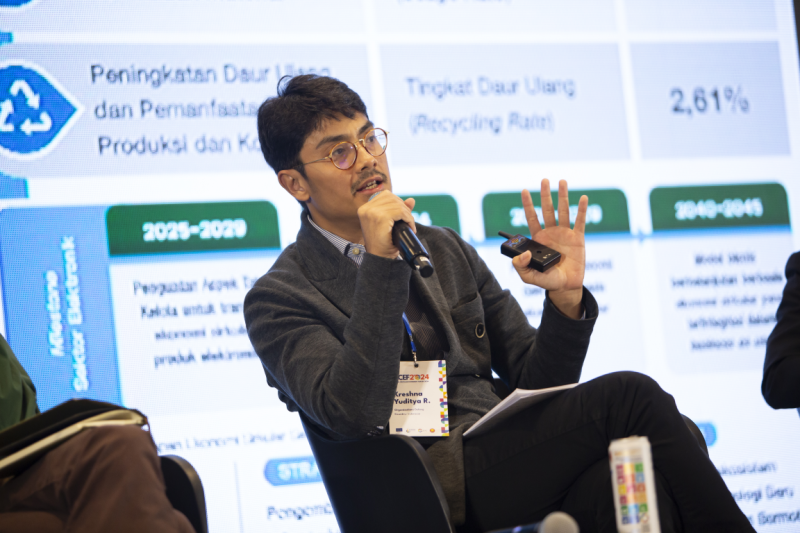
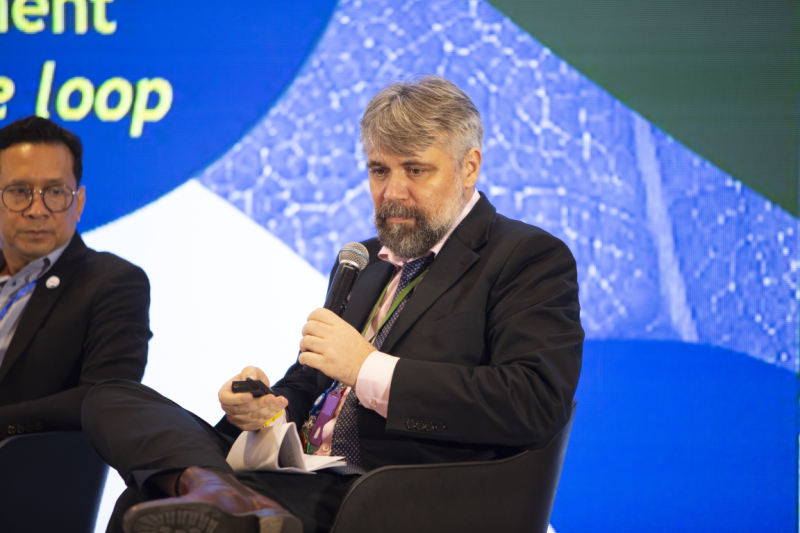
Mr. Kreshna Yuditya Rahmat, Founder of Dulang in Indonesia, shared insights on repair and reuse in the B2B sector, while Mr. Michael Bucki discussed EU policies promoting lifetime extension and the right to repair. Panelists also examined leasing and sharing models for electronics to reduce environmental impact.
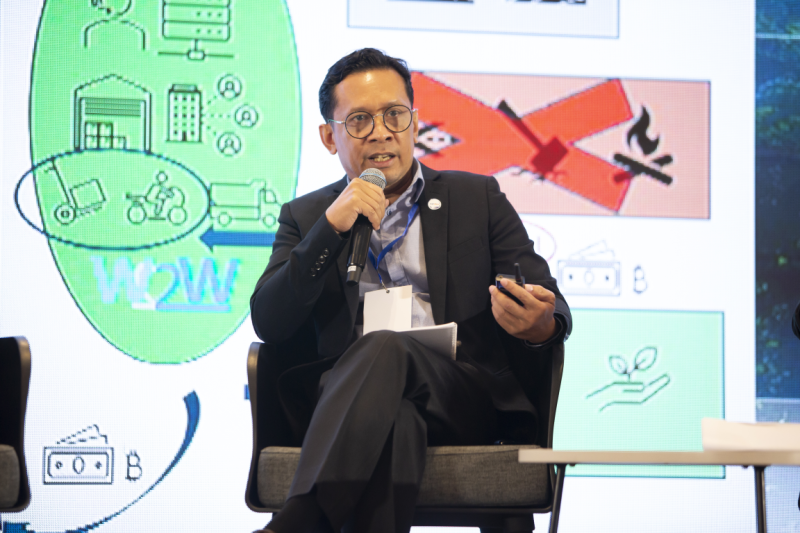
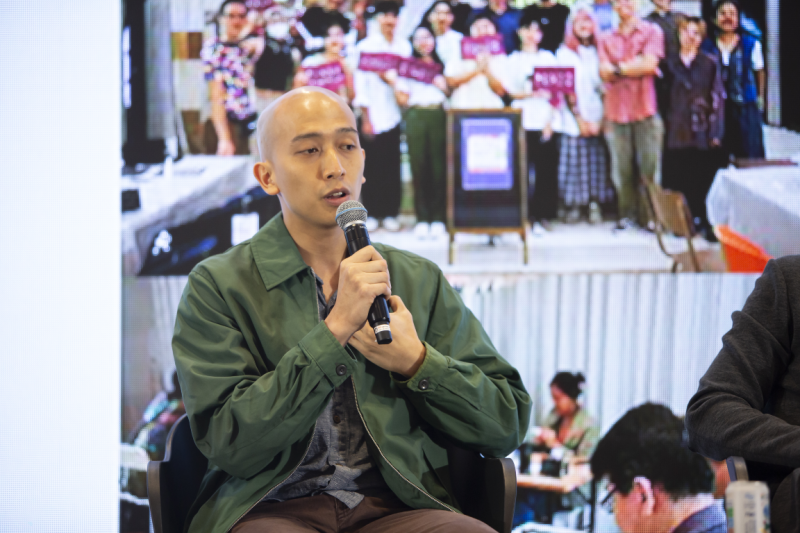
Dr. Kittinan Annanon, MTEC, NSTDA, Thailand | Mr Parkpoom Kometsopha, Sustainability specialist, Director & Co-Founder of Reviv Community, Thailand
Session 4: Towards Circular Societies Based on Southeast Asian Traditions, Concepts, and Values
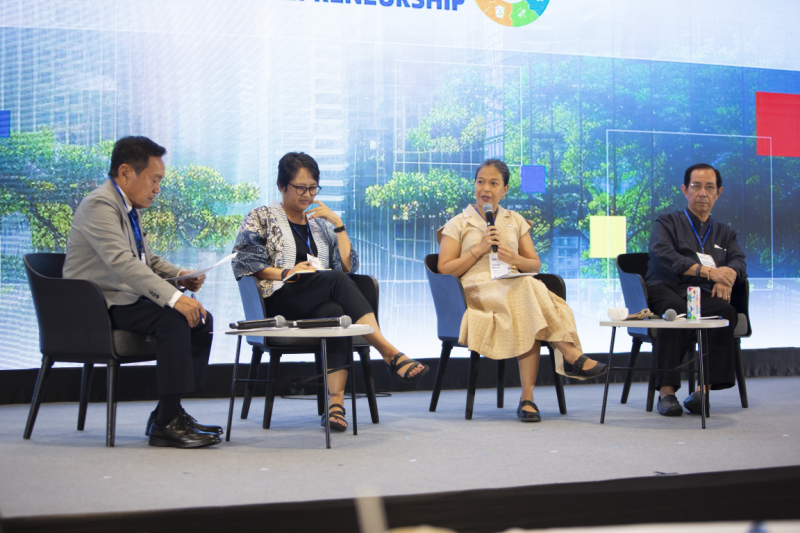
This session focused on Southeast Asia’s rich cultural heritage as a driver for circularity. Mr. Anthony Pramualratana, Deputy Executive Director of ACSDSD, moderated the discussion, where panelists like
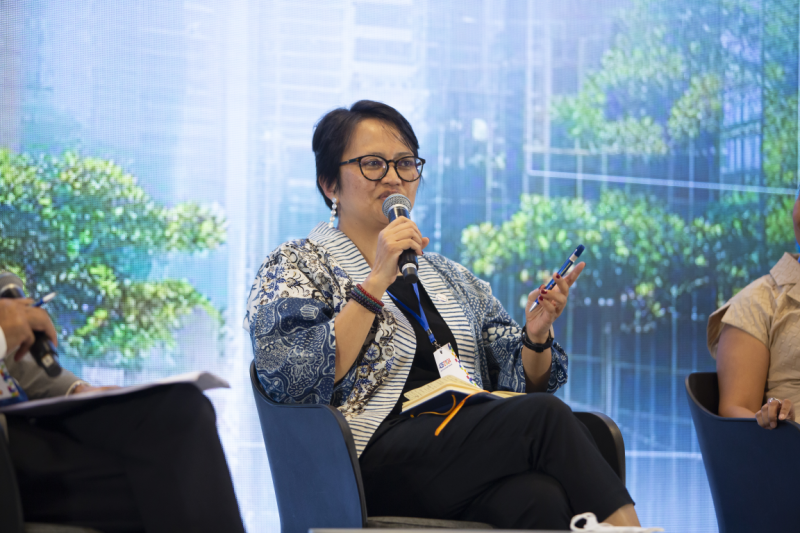
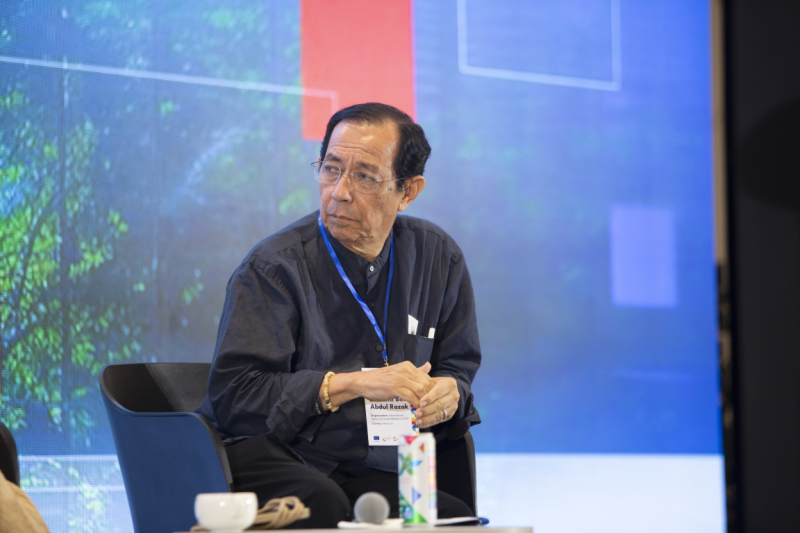
Ms. Yulia Sugandi from IPB University, Indonesia, and Mr. Dzulkifli Abdul Razak from Universiti Sains Malaysia, explored how traditional practices such as repair, reuse, and community resource sharing can inspire modern circular economy efforts. The session underscored the need to integrate these values into broader circular economy strategies.
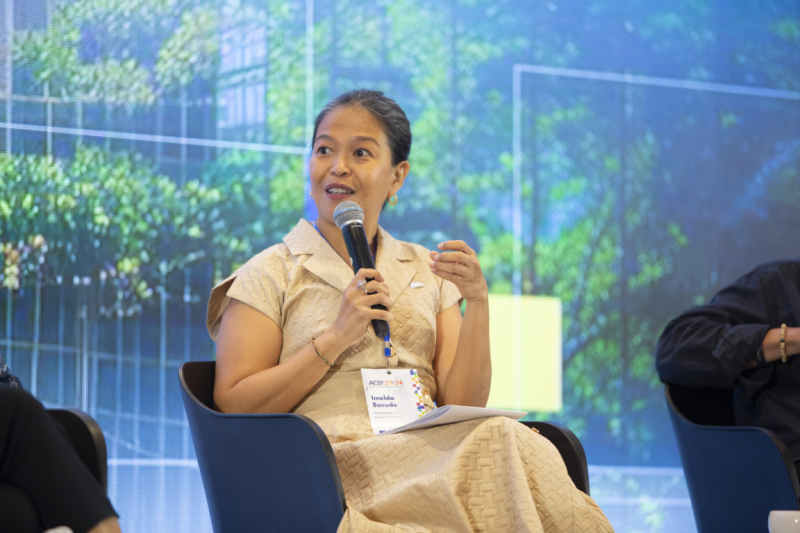
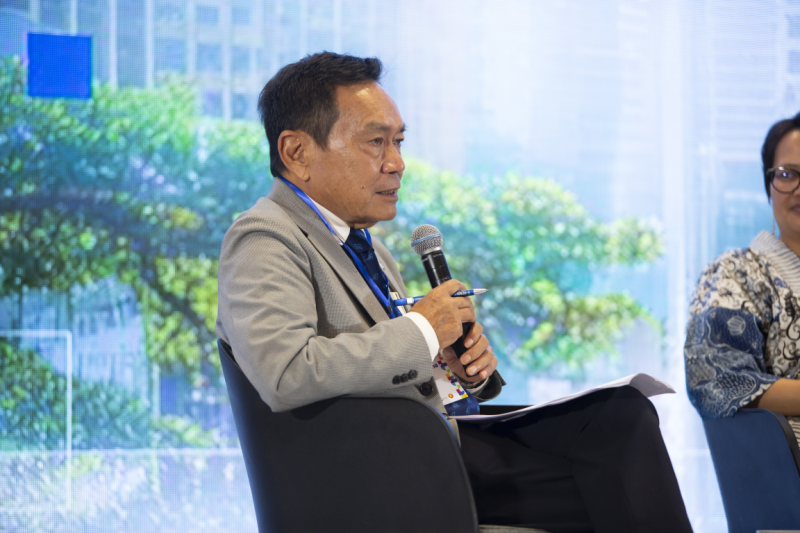
Ms Imelda (Dada) Bacudo, COP28 Senior Advisor on Food and Agriculture, the Philippines
Session 5: Strengthening ASEAN’s Cooperation Towards a Circular Society – Priorities for the Next Five Years
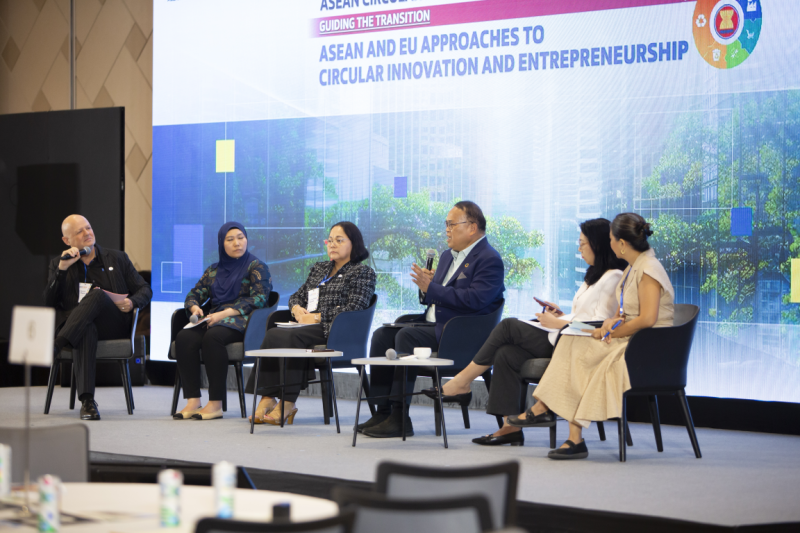
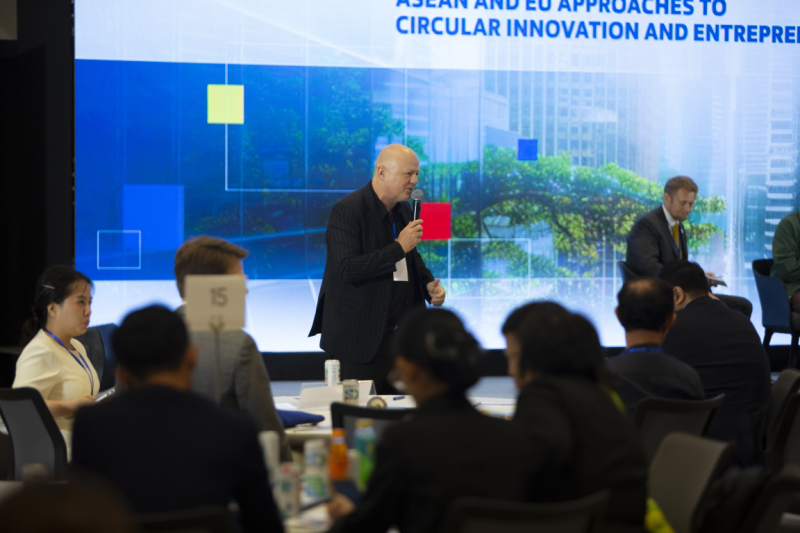
In this session, moderated by Jost Wagner and Ms. Imelda Bacudo, panelists discussed how ASEAN cooperation on circular economy could be strengthened, especially as Malaysia prepares for its 2025 ASEAN Chairmanship.
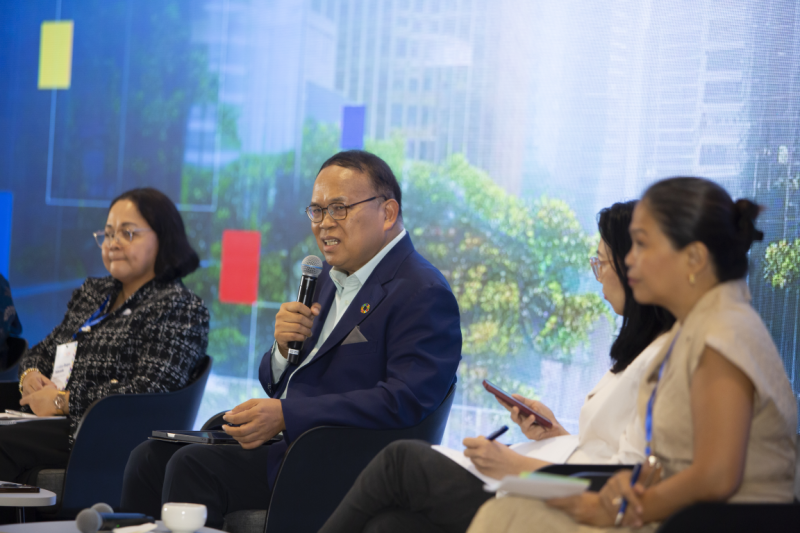
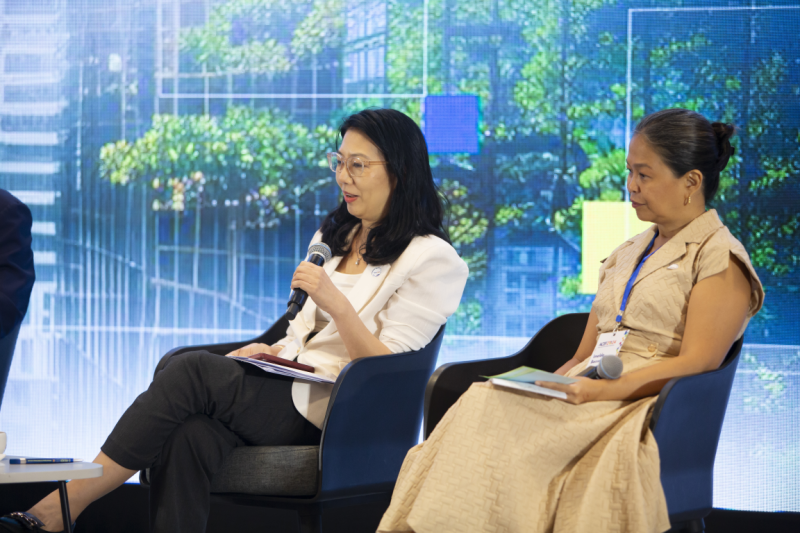
Ms. Teh Lip Li, Dr Wijarn Simajaya, President, Thailand Environment Institute,
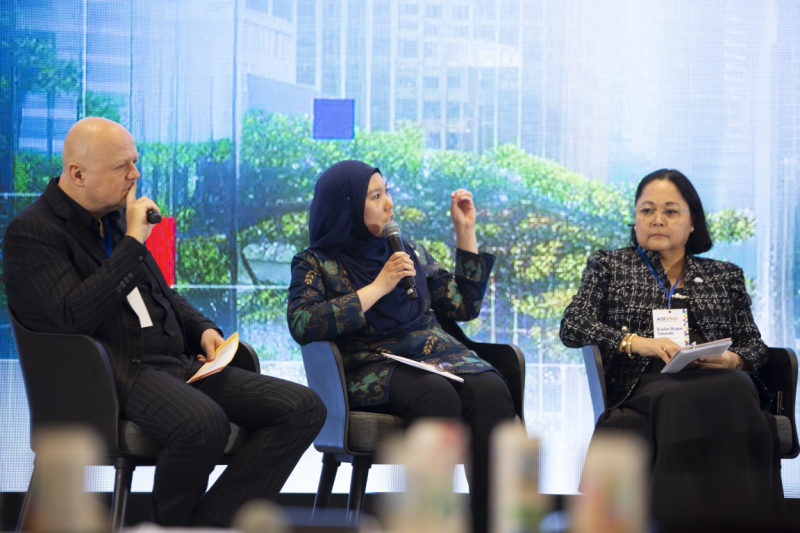
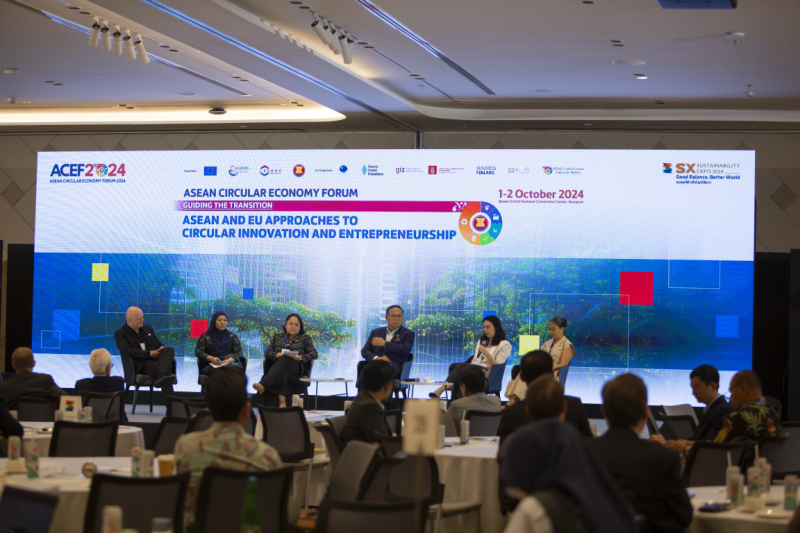
Ms Latifahaida Latif, Assistant Director, Analysis & Monitoring on Finance and Socio-Economic Division, ASEAN Secretariat and Ms. Evelyn Taboada discussed how the region’s initiatives in the socio-cultural and economic sectors can align towards a unified circular vision.
Closing Remarks
Dr. Vong Sok concluded the forum with key takeaways on how collaboration among governments, civil society, academia, and the private sector will be essential to achieve ASEAN’s circular economy goals. He emphasized that ongoing efforts, including the ACESP and ACEBA, are crucial to advancing regional sustainability.


